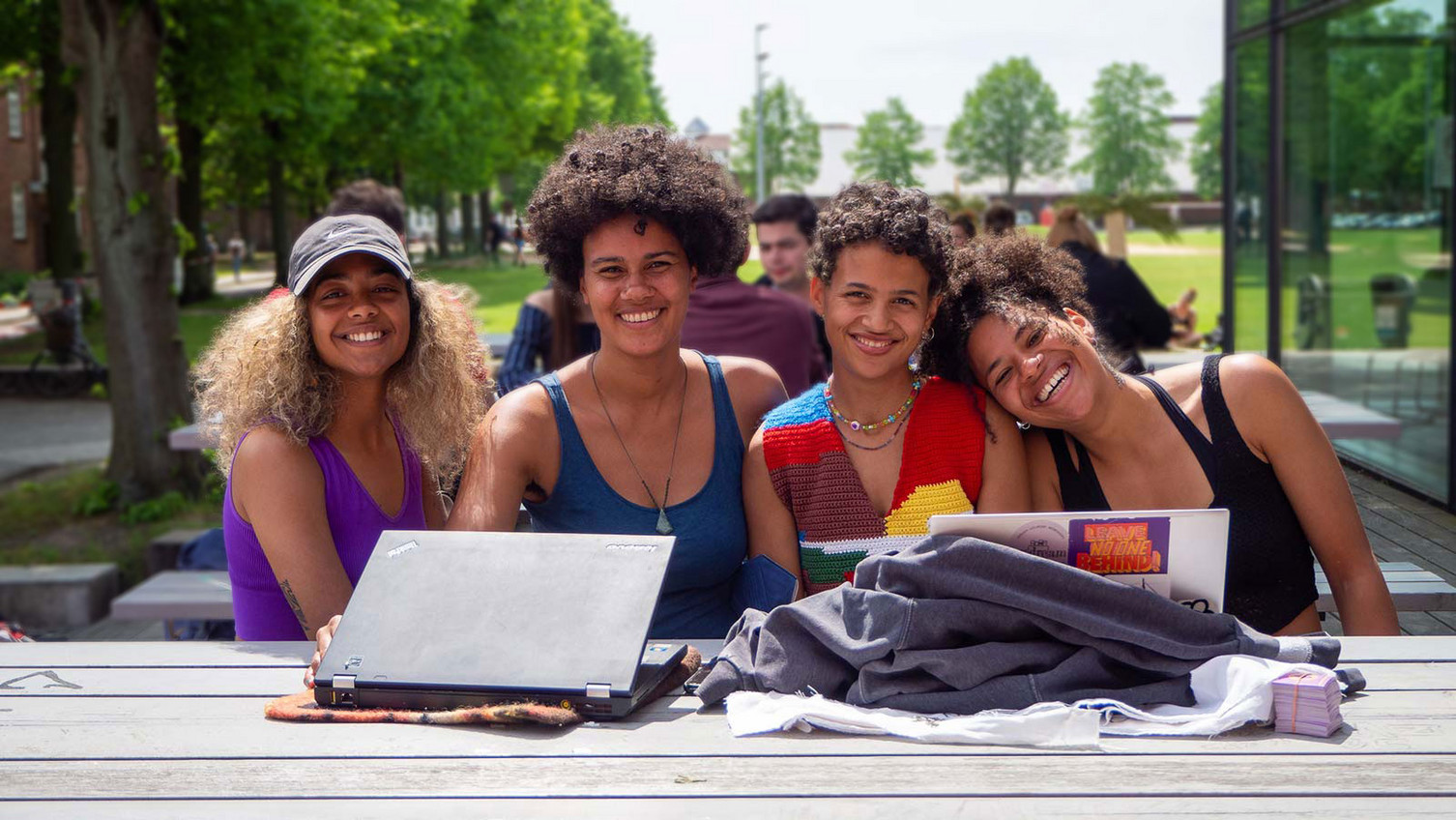"Creating a community where everyone feels safe and understood"
2022-05-30 The "Junges Afrokollektiv" Lüneburg creates a safe space for Black students at Leuphana and advocates against racism and for intersectional justice.
"Look what I brought," Mariama places a tall pile of stickers in the center of the table, "the posters are already printing, too." The three young women she is talking to bend over the colorfully printed stickers. Alisha, Makena, Nana and Mariama are sitting together on the Leuphana campus under the trees in front of the refectory building. The sun is shining, the surroundings are lively. Five days remain until the "Black Lives Still Matter" demonstration in Lüneburg.
"What speeches can we firmly expect now?" asks Makena into the round. The four discuss who will speak live and what audio they will play at the upcoming demonstration. Is the music selection set? Are there enough stewards? What Corona measures need to be observed? "By the way, the registration with the city worked out," Alisha interjects. Makena sits in front of her laptop and checks off items one by one from the long to-do list.
The four students are among the main organizers of the "Junges Afrokollektiv" (JUA collective) Lüneburg. They meet once a week to organize projects together, "just to talk" or - as today - to organize a demonstration. The JUA collective is the main organizer of the demonstration on May 25, which commemorates the racist murder of George Floyd as well as African Liberation Day under the slogan "No justice, no peace!". Every year, the date - the founding day of the Organization of African Unity (OAU) in 1963 - stands to celebrate, but also to continue to demand, the independence of African states and the struggle against colonialism.
Today we know: Numerous people marched together through downtown Lüneburg last Wednesday to make a statement against racist police violence and for intersectional justice. "It was a good feeling to walk through the streets with so many people and to get loud," Alisha says looking back. "We were especially impressed with the collaboration with the other initiatives and are proud to have put something like this together."
Most of the current members got to know each other through their studies at Leuphana. At the time of the first "Black Lives Matter" demonstrations, today's JUA collective was then formed through the desire to get further involved. The student initiative is primarily intended to be a contact point and safe space for Black students at Leuphana University to exchange ideas and talk about common experiences they have at a mainly white university. To this end, the collective organizes, for example, the "Black Open Space" once a month, most recently outdoors in Lüneburg's Kurpark: "It's about connecting with others and creating a community where everyone feels safe and understood," explains Alisha.
The early twenty-year-old is studying environmental science at Leuphana College, just like Makena and Nana. Mariama is studying cultural studies. Almost 30 Leuphana students are part of the initiative, six of whom form the organizational core team. Since last winter semester, the JUA collective has also been part of the DSi (the student initiatives organisation) at Leuphana. In the future, the members would like to continue to advocate for the interests and concerns of Black students on the Leuphana campus and create a higher visibility. For example, at the upcoming Lunatic on June 3 and 4, they will oversee a "safe space" for BIPoC (Black, Indigenous and People of Color) on the festival grounds.
Information on spelling
The term BIPoC (Black, Indigenous and People of Color) is a self-designation of people who experience multiple forms of racism. The term "Black person" is also a self-designation used to describe a social position affected by racism. "Black" is capitalized here to indicate that the term is a constructed pattern of attribution rather than a real characteristic based on the color of one's skin. The term white is italicized to also emphasize that it does not denote a biological characteristic, but rather a political and social position associated with privilege and dominance. The term white person refers to people without experience of racism.

